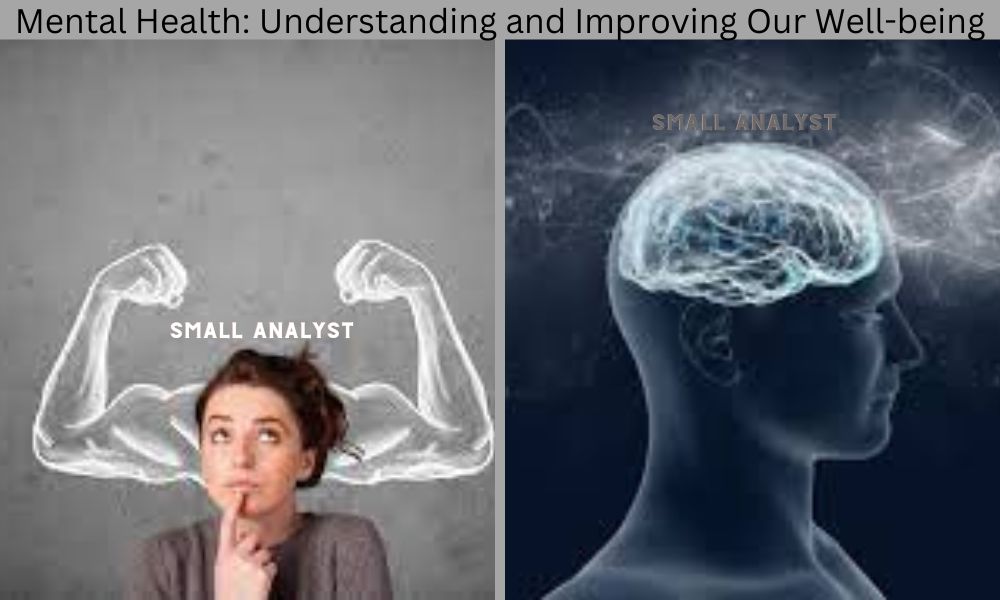Mental Health: Understanding and Improving Our Well-being
Mental health is a crucial aspect of our overall well-being that often goes neglected or ignored. It refers to our emotional, psychological, and social well-being and plays a significant role in how we think, feel, and act. Mental health affects not only our personal lives but also our relationships, work, and daily activities.
Unfortunately, mental health problems are becoming increasingly common in today’s fast-paced and stressful world. Studies have shown that one in four people will experience some form of mental illness in their lifetime. This highlights the importance of understanding and taking care of our mental health.
Mental health refers to a person’s overall psychological well-being, including their emotional, psychological, and social well-being. It encompasses how a person thinks, feels, and behaves, and influences how they navigate the challenges and opportunities of life.
Mental health is an essential aspect of overall health, and can impact many areas of life, including relationships, work, and daily functioning. Mental health can vary over time and be influenced by a range of factors, including life events, genetic predisposition, and individual experiences and coping strategies.
Mental health conditions, such as depression, anxiety, and bipolar disorder, can cause significant distress and interfere with daily life. With appropriate treatment, including therapy, medication, and lifestyle changes, many individuals with mental health conditions can experience improvement and lead fulfilling lives.
It is important to prioritize mental health and seek help when needed, as taking care of one’s mental well-being is an important aspect of overall health and well-being.
Mental Health: Understanding and Improving Our Well-being
Mental Health: Understanding and Improving Our Well-beingSo, what can we do to improve our mental well-being? Here are some tips:
- Practice self-care: Take time out of your busy schedule to engage in activities that bring you joy and relaxation, such as reading, exercising, meditating, or spending time in nature.
- Connect with others: Strong social connections have been linked to better mental health. Spend time with friends and family, join a community group, or volunteer for a cause you care about.
- Get enough sleep: Lack of sleep can affect our mental health, causing mood swings, irritability, and decreased concentration. Aim for 7-9 hours of sleep per night.
- Eat a healthy diet: A nutritious diet can help improve our mood, increase energy levels, and support overall well-being.
- Seek help when needed: If you are struggling with your mental health, reach out to a trusted friend, family member, or professional. There is no shame in asking for help, and it is a sign of strength.
It is important to remember that mental health is just as important as physical health. By taking steps to improve our mental well-being, we can lead happier, more fulfilling lives and be better equipped to handle life’s challenges.
If you or someone you know is in need of immediate assistance, please seek help from a mental health professional or call a helpline such as the National Suicide Prevention Lifeline at 1-800-273-TALK (8255) in the U.S.

Mental Health: Understanding and Improving Our Well-being
Mental health refers to a person’s overall psychological well-being, including their emotional, psychological, and social well-being. Mental health is an essential part of overall health and can affect a person’s daily life, relationships, and ability to cope with stress and challenges.
Mental health conditions, such as depression, anxiety, and bipolar disorder, can cause significant distress and impairment in daily functioning. These conditions can be treated with therapy, medication, and other forms of support, and early intervention and treatment can lead to improved outcomes.
Taking care of your mental health is just as important as taking care of your physical health. This can include engaging in activities that you enjoy, maintaining healthy relationships, getting enough sleep and exercise, and seeking professional help when needed. By prioritizing your mental health, you can promote a more fulfilling and balanced life
Public Health A Guide to Protecting Our Communities
